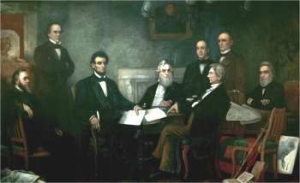New Prisoner Data Released: As Goes California . . . Well, Never Mind
The Bureau of Justice Statistics has released the latest installment in its annual series on imprisonment in the United States, Prisoners in 2011. The BJS report is a treasure trove of data, but what does it all add up to? The authors make clear from the start what they see as the lead “story” in the numbers:
During 2011, the number of prisoners under the jurisdiction of state and federal correctional authorities declined by 0.9%, from 1,613,803 to 1,598,780. This decline represented the second consecutive year the prison population in the United States decreased.
As one reads on, however, it becomes clear that this declining prison population story is really just a California story. Over calendar year 2011, California’s prison population dropped by 15,493 inmates. During that same time, the overall U.S. drop was 15,023. Absent California, then, the real national story is one of stability in imprisonment, not decline.
That California is a bellwether for the rest of the nation is a familiar cliche, but there is little evidence that the rest of the nation is following the Golden State’s lead in this area.

